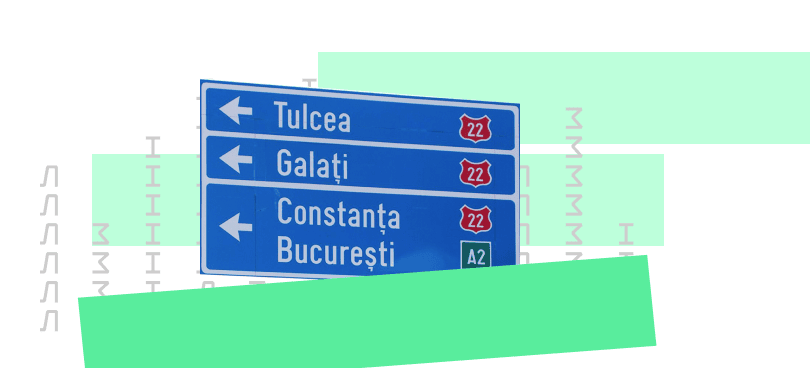Article by the Agency for Legislative Initiatives (ALI) for the Decentralisation portal
Occupation and hostilities resulted in damage to infrastructure, including schools, hospitals, social centres and administrative institutions, making residents’ access to basic public services difficult or impossible. In addition, communities faced a shortage of qualified personnel, in particular doctors, teachers, and social workers. These specific problems, which vary by de-occupied community, require different approaches to their solution. On the other hand, in conditions of the ongoing war, it is impossible to foresee when exactly temporarily occupied communities will be liberated and, moreover, when the military aggression of Russia, whose actions cause harm to the communities on a daily basis, will stop.
Bearing this in mind, tools to analyse the problems existing in communities in various sectors and those that will permit responding to them immediately after the community’s de-occupation are needed right now. Representatives of the local government, especially those from frontline communities, also noted the importance of the preparatory stage. Based on research conducted by the Agency for Legislative Initiatives (ALI) in 2023, we found that since damage assessment and prioritisation are most likely impossible until the actual liberation of territories, it is expedient to have a preparatory stage, which should include the following:
- arranging resources and personnel (volunteers, NGO, businesses) who will quickly join the recovery upon the de-occupation;
- accumulating humanitarian stock in geographically close territories (that is, if Ukraine liberates the territory of Donetsk Oblast, it is important to have necessary humanitarian aid for residents in the closest region and ensure its prompt delivery to the designated territories);
- providing necessary equipment, including computers and construction materials;
- training the team of experts in the delivery of psychological and medical services;
- creating damage assessment commissions.
The preparatory stage refers to the recovery of various spheres, in particular, the field of public services. So, what is the current situation with public services in communities, and why is it important to assess them for subsequent modelling of their recovery?
The Agency for Legislative Initiatives performed pilot research in 17 de-occupied communities based on the developed methodology for assessing the state of public services. In the course of analysing all collected data, we identified the main aspects affecting the organisation and provision of public services:
After the de-occupation, services were not provided immediately, as certain arrangements were being made, personnel were being recruited, and registers were being opened.
Access to the territorial community’s register, which is linked to the State Migration Service, was restored as a matter of priority. Opening these registers helped to quickly issue registrations, abstracts, certificates and other necessary documents. Second, access to the “social community,” i.e., the recovery of registers for the registration of subsidies, benefit payments, etc. Considering this, community representatives note that it is already necessary to train a personnel pool and prepare the appropriate technical support since administrative and social services will be especially in demand after the de-occupation.
The processes in the provision of administrative services are especially well-established and are mostly provided in full.
Certainly, the arrangement of service provision in each of the communities varies depending on the security situation, proximity to the area of active hostilities, population, personnel pool, etc. However, even under such conditions, administrative services are being provided. In some communities, there are mobile administrative service centres (ASC), or administrators visit settlements following the established schedule. For example, if a total of 500 people are living in a settlement, there is no need for an administrator to work 24/7. Accordingly, there is one reception day when the administrator goes to the settlement and provides services. In addition, the community should make the decision to avoid gathering people in one place, as it is dangerous today. Starostas work in settlements with disabled and elderly people. If issues concerning document drafting arise, residents should contact the starosta, who forwards requests to the ASC.
At the same time, the system of administrative services in de-occupied communities experienced overloading. This is mostly due to the number of people who need documents, housing recovery, consultations, etc.
A significant share of residents of de-occupied communities are socially vulnerable, and this requires strengthening of the social sphere.
In some communities, this is connected with a large number of IDPs, in others – with the presence of elderly people, disabled people and people in difficult life circumstances. In addition, active internal migration within the regions increases imbalances between the communities, which is evident in connection with varying security situations. Rapid migration is also associated with the lack of coordination and control of humanitarian aid, which can cause residents to move both within the community and a certain region.
Social services are provided in accordance with residents’ motions and requests. Some services may not be provided in connection with the lack of persons in need of such services. Charitable organisations, volunteers, and international partners are actively involved in providing services. However, they mostly provide humanitarian aid. Therefore, one cannot definitely state the sustainability of the social service system in communities. Moreover, in some communities, there are no Social Service Centres, and there is a shortage of social workers. In communities with social workers available, they can perform various tasks, from managing social processes to directly providing social services.
Community representatives note that the lack of social specialists is associated with low salaries. This generally affects the motivation of employees and makes it impossible to attract new people when vacancies are available.
Second, the lack of insurance. Insurance is necessary to strengthen the work of social employees since they frequently travel to settlements that are constantly shelled. In addition, they work with difficult cases, i.e. people with disabilities for whom evacuation arrangements are needed, families in difficult life circumstances, elderly people, etc. Communities focus on changing the approach to social policy in general since social services should be provided to support people in need rather than fully provide for their living.
Lack of housing for internally displaced persons.
In some small communities, most often, there are no temporary accommodations for IDPs. Therefore, people are temporarily accommodated in abandoned but not destroyed houses whose owners allow other people to live there. However, as community representatives state, a significant share of local residents return to the communities over time, so there is less and less unoccupied housing left to accommodate IDPs.
Replacing social services with humanitarian aid.
As community representatives state, there are certain risks in excessive engagement of humanitarian missions. In particular, it encourages unwillingness to work among community residents and creates apathy and dependence.
The need to provide personnel resources.
A shortage of personnel has been identified in various areas. The relocation of the population had its toll on the shortage of staff. In this case, it is necessary to attract experts from other communities, and even other regions. Communities have to engage different employees in urgent tasks, and in fact, one expert works in different spheres.
The situation with the engagement of social specialists varies. For example, even if any of the social specialists leave, there are people who are registered at the Employment Centre and, accordingly, perform the duties of social workers. At the same time, in some communities, social worker duties are performed by public organisations or representatives of various initiatives (for example, the “Army of Recovery” initiative). However, this does not eliminate the problem of personnel shortage since social services include not only humanitarian aid but also the assessment of the needs of vulnerable populations, delivery of relevant social services, monitoring of work with vulnerable populations, etc. In particular, community representatives noted that professional knowledge is needed to assess the needs qualitatively; that is why there is a shortage of training for social workers at the community level.
Healthcare services are provided partially with the involvement of charitable organisations.
In particular, family doctors, therapists, cardiologists, and psychotherapists come to settlements, and partners provide the communities with technical equipment, etc. In addition, charitable foundations contribute to the reconstruction of medical and obstetric stations. In some communities, telemedicine is functional, while employees also undergo training in relevant public organisations.
An important tool is the conclusion of agreements between communities to provide the population with healthcare services. For example, joint funding for primary healthcare care maintenance. This way, doctors of one community may go to the starosta’s office in another community and provide services there.
Difficulties in providing services related to land issues.
At present, even land surveyors do not have access to the public cadastral map because it is not fully functional. Restricting such access makes working more complicated and generally does not allow for resolving any issues. Another community cannot provide this service either since most communities enter into agreements with the Department of Land Resource Management of the Oblast. After all, this service is not needed today in those communities where territories are heavily damaged and mined, but communities noted that there were certain cases when this service had been requested.
“Formal” procedures for reporting on service delivery.
Community representatives are informed of the additional load on employees due to different reports on services provided. Therefore, in addition to the compulsory reporting standard required by central executive authorities, communities continuously receive requests from population categories, settlements, certain types of services, etc. This often creates an extra load on the employees.
OMA and DMA request information concerning the number of services provided, social and demographic characteristics, and the financial situation. Often, this information is duplicated by OMA and DMA. In turn, this requires significant time. Moreover, there is no interaction between OMA and DMA. While working with communities, we learned that often, OMA does not receive information from DMA, which is transmitted to it by the settlement military administrations. Community representatives consider optimising the reporting system through digitalisation of the process to be a possible solution.
The need for consultative support.
This is associated not only with the support of residents. Representatives of communities stated the need for consultations on taxation since there are many issues, and communication with the tax service takes place only for the purpose of tax accrual.
Delivery of housing and utility services.
In communities where the infrastructure was heavily shelled, the delivery of housing and utility services is challenging. Although municipal companies operate in the community, the biggest problem is the lack of equipment for full-scope work.
Thus, measuring the state of public services in de-occupied communities is necessary for the development of certain solutions since services are not only about supporting residents but also about communication between local authorities and residents. It is critical to assess the condition immediately after de-occupation to understand the problems and model the renewal of service provision based on the data and facts. This is a compulsory constituent part of the process of the community’s return to normal life. It should be realised at all levels, so the work must be started now.















